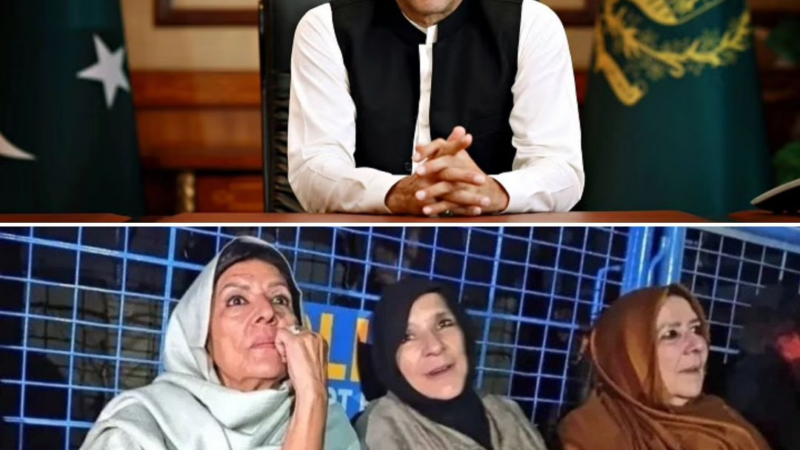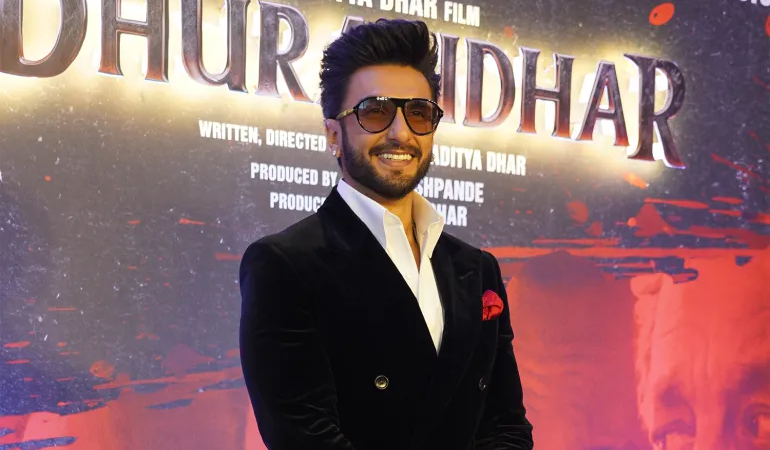UNVEILING THE POTENTIAL OF INDIA-IRAN COLLABORATION AMID TURBULENT TIMES
By Maheep
India’s External Affairs Minister Dr. S. Jaishankar’s two-day visit to Iran in mid-January 2024 holds paramount significance amidst escalating regional tensions. The context includes the Hamas-Israel conflict, claimed ISIS attacks in Iran, and the maritime security crisis caused by Houthi actions. The visit underscores India’s focus on partnerships with Iran, particularly the Chabahar port and the International North-South Transport Corridor (INSTC). Additionally, the announcement of the India-Middle East-Europe Economic Corridor at the G20 summit adds to the complexity. Amid rising maritime security concerns, Iran’s influence through the ‘axis of resistance’ and recent incidents, like the drone strike on MV Chem Pluto, draw attention. The visit also emphasizes India’s commitment to connectivity projects and its principled stance on West Asia conflicts, demonstrating active engagement while upholding independence.
Indian External Affairs Minister Dr S. Jaishankar’s visit to Iran amidst rising geopolitical tensions in the Middle East marks a significant diplomatic move for both countries. The Middle East is plagued by severe conflicts, escalated by the Israel-Hamas war, followed by the attacks on vessels and ships passing through the Red Sea by Houthis, a militant organisation in Yemen backed by the Iranian regime.[1]
Dr. Jaishankar’s visit also comes weeks after two vessels, MV Chem Pluto in the Arabian Sea and MV Saibaba in the Red Sea, faced attacks by the Houthis, and days after the US and the UK launched multiple airstrikes targeting the Houthis, further exacerbating the ongoing turmoil. The visit by the Indian Externa Affairs Minister (EAM) aimed at discussing bilateral, regional, and global issues with his Iranian counterpart Hossein Amir-Abdollahian. This meeting was expected to emphasize political cooperation, connectivity initiatives and strong people-to-people ties between the two nations.[2]
During his visit, Dr Jaishankar held discussions with Iran’s Minister of Roads and Urban Development, Mehrdad Bazrpash. The signing of an agreement on further developing the Chabahar Port, a strategically important connectivity project connecting India to Central Asia via Iran. The agreement signifies India’s staunch commitment to enhancing regional connectivity and boosting trade ties with Iran and the Central Asian States.[3]
Dr Jaishankar also called on Iranian President Ebrahim Raisi, and the two leaders pushed for speedy implementation of India-Iran agreements. In the meet, Dr Jaishankar expressed India’s interest in concluding a comprehensive and long-term cooperation agreement with Iran. The two leaders underlined joint commitment towards combating terrorism and organized crime, establishing stability and security in Afghanistan, boosting international trade using their national currencies, as well as maintaining the security of shipping in international waters.[4]
This visit was a strategic move to strengthen bilateral ties between the two states. It focused on regional security, especially the situation in the Red Sea. India, being a major importer of oil from the region, has justified security concerns in ensuring the security of the sea lanes of communication including the Straits of Hormuz and Bab-el-Mandeb. The discussions indicated a shared concern for stability in the region with both India and Iran having high stakes in the security of these chokepoints. This will pave the way for increased cooperation towards regional security and stability.
This visit also comes with various benefits for Iran in collaborating with India. India’s rapidly growing economy offers a vast market for Iranian goods and services. Iran, already reeling under economic sanctions, can boost its economic growth through increased trade with India. In this regard, Iran can contribute to fulfilling India’s growing energy needs through the supply of its massive oil and gas reserves. A stable relationship with India can provide a steady market for Iran’s energy exports.
Infrastructure and connectivity projects such as the International North-South Transport Corridor (INSTC) and the Chabahar Port will boost Iran’s economic prospects through enhanced trade and investments. This can provide impetus to Iran’s economy which is plagued by various domestic and external factors.[5]
The bilateral trade between India and Iran hovers around merely USD 2 billion and has huge potential for further increase. Iran has expressed its desire to give ‘special priority’ to India in its oil exports, despite India’s imports from Iran plummeting as a result of economic sanctions imposed by the US.[6]
Both countries collaborate on maritime security, counter-terrorism, and cyber-security aspects as well. As Iran became the latest victim of terrorism with over 100 Iranians dead in a recent bomb blast, the importance of partnership with India on counter-terrorism has gained a renewed urgency. Both countries already share various multilateral fora, with Iran joining BRICS and the Shanghai Cooperation Organisation (SCO).[7]
Dr. Jaishankar’s recent visit to Iran, set against the backdrop of heightened geopolitical tensions in the Middle East, underscores a pivotal diplomatic manoeuver for both nations. Amid conflicts such as the Israel-Hamas war and Houthi attacks in the Red Sea, this visit aimed to fortify bilateral, regional, and global ties. Crucially, it emphasizes India’s steadfast commitment to strategic autonomy with independent foreign policy and navigating geopolitical complexities while maintaining robust relations with nations, even amid conflicting affiliations, as showcased by Iran’s ties with China.
In a significant diplomatic engagement, Indian EAM Dr. Jaishankar had a productive discussion with his Iranian counterpart, Dr. Amir-Abdollahian. The bilateral exchange covered various dimensions of their relationship and addressed pressing global and regional issues. Dr. Jaishankar conveyed Prime Minister Modi’s warm greetings to President Raisi and expressed condolences for the recent terrorist attack in Kerman. Emphasizing the regular high-level interactions between the two countries, he highlighted the potential for expanded cooperation in political, economic, and cultural domains. The inclusion of Farsi in India’s New Education Policy was announced, reinforcing the cultural ties. Discussions delved into regional connectivity, focusing on India’s commitment to the Chabahar port and the International North-South Transport Corridor. Dr. Jaishankar addressed concerns about recent events in West Asia, particularly the situation in Gaza, emphasizing India’s unwavering stance against terrorism and the need to avoid civilian casualties. The maritime security situation, threats to commercial traffic, and developments in Afghanistan and the Caucasus were also on the agenda. Dr. Jaishankar expressed confidence that the discussions would propel bilateral cooperation amid the dynamic global scenario, thanking the Iranian authorities for their hospitality and looking forward to future engagements.
In conclusion, the collaborative venture between India and Iran, as demonstrated by Dr. Jaishankar’s visit, is poised to yield substantial benefits for both nations. From economic growth and energy exports to infrastructure development and regional stability, this partnership holds the potential for enduring and mutually advantageous cooperation. The visit’s impact extends beyond immediate diplomatic gains, laying a strong foundation for sustained collaboration and influencing the trajectory of Iran’s diplomatic strategies in the dynamic Middle East and global arena.
*Dr. Maheep is an eminent scholar of International Relations and Global Politics with a specialization in Arab and Islamic studies. He contributes regularly on issues of utmost importance.
[1] Sen, S. R., India’s Jaishankar to Head to Iran as Red Sea Conflict Escalates, January13, 2024, Bloomberg News, https://www.bloomberg.com/news/articles/2024-01-12/india-s-jaishankar-to-head-to-iran-as-red-sea-conflict-escalates accessed on January 15, 2024.
[2] Mattoo, S., India, Iran discuss Houthi attacks in Red Sea during jaishankar visit, January 15, 2024, https://www.livemint.com/economy/india-iran-discuss-houthi-attacks-in-red-sea-during-jaishankar-visit-11705339972472.html accessed on January 16, 2024.
[3] Acharya, A., Jaishankar visits Iran, signs agreement on Chabahar, January 15, 2024, https://www.indiatoday.in/india/story/external-affairs-minister-s-jaishankart-india-iran-chabahar-port-tehran-2489047-2024-01-15 accessed on January 16, 2024.
[4] ANI, EAM S Jaishankar, Iran President Raisi discuss pacing up Iran-India agreements, January 16, 2024, https://www.hindustantimes.com/world-news/eam-s-jaishankar-iran-president-raisi-discuss-pacing-up-iran-india-agreements-compensating-for-delays-101705377574654.html accessed on january 17, 2024.
[5] Kaya, E., The Role of INSTC in India’s Central Asian Strategy, July 2023, ANKASAM, https://www.ankasam.org/the-role-of-instc-in-indias-central-asian-strategy/?lang=en accessed on January 19, 2024.
[6] Sharma, M., Iran pitches ‘special priority’ for India in its oil exports, July 16, 2023, WION, https://www.wionews.com/world/iran-pitches-special-priority-for-india-in-oil-exports-with-focus-on-cooperation-over-chabahar-port-616263 accessed on January 20, 2024.
[7] Kahliq, R. and Latif, A., Iran becomes full member of SCO, Jly 4, 2023, Anadolu Ajansi, https://www.aa.com.tr/en/asia-pacific/iran-becomes-full-member-of-shanghai-cooperation-organization/2936909 accessed on January 22, 2024.





